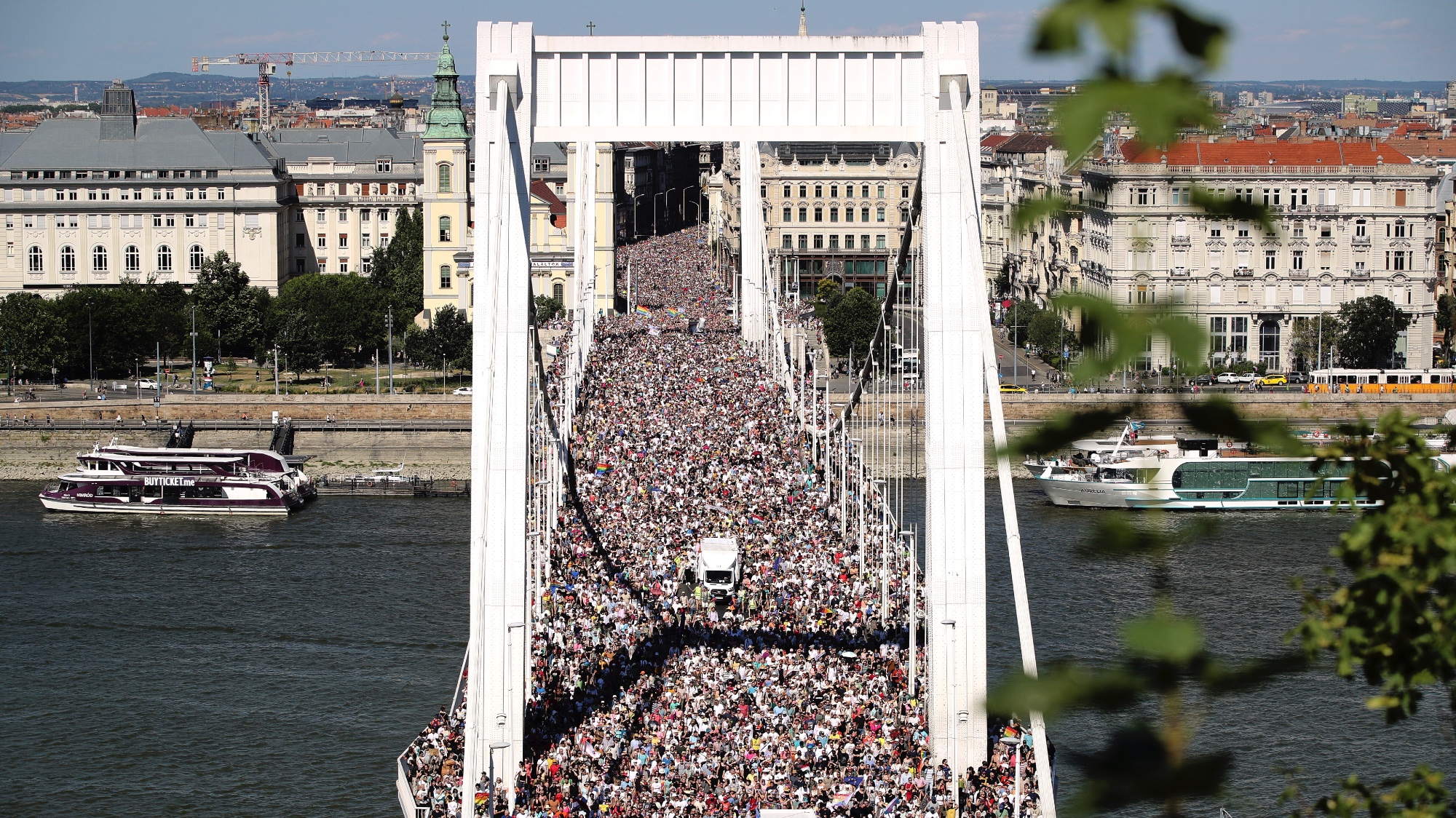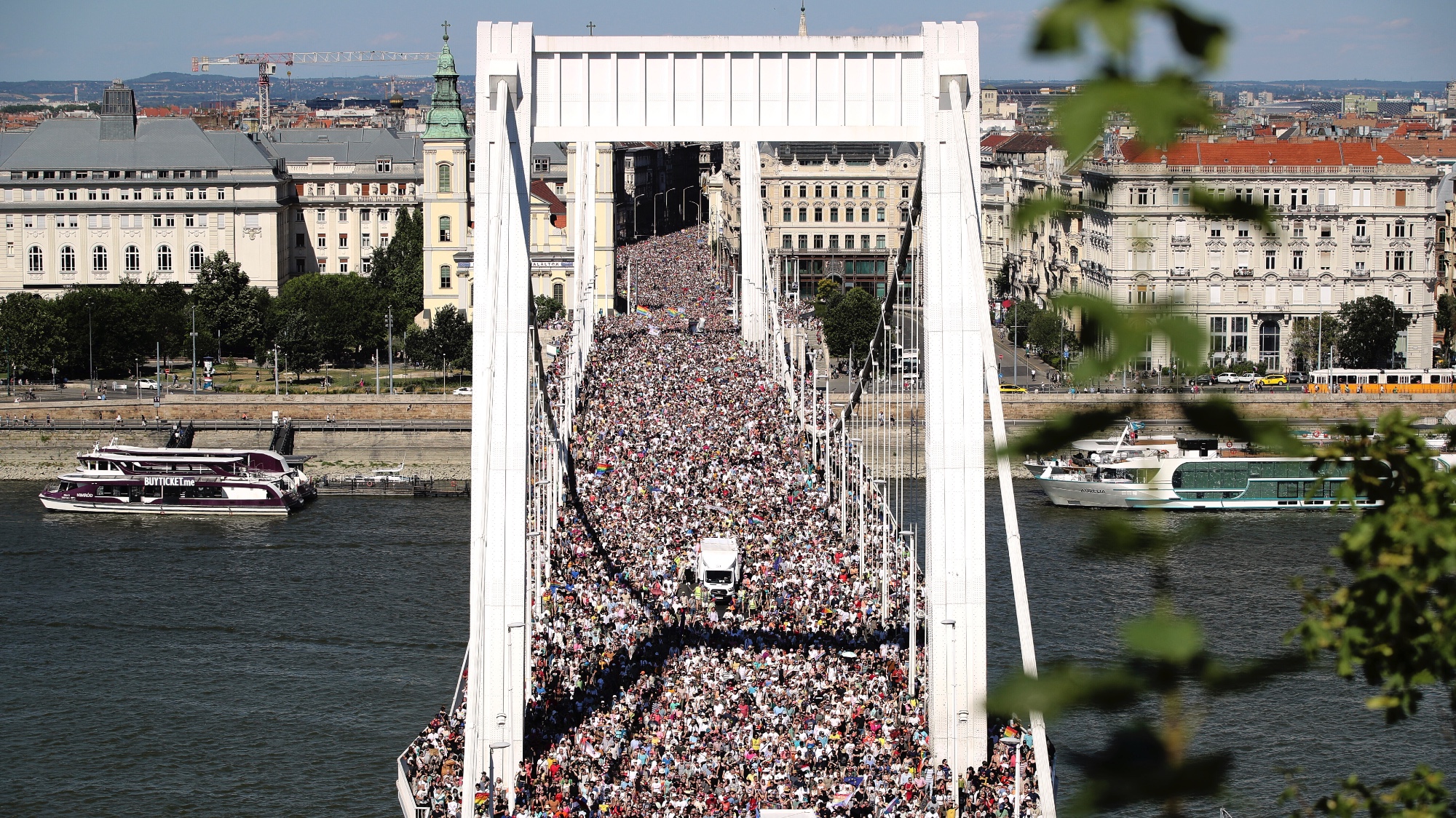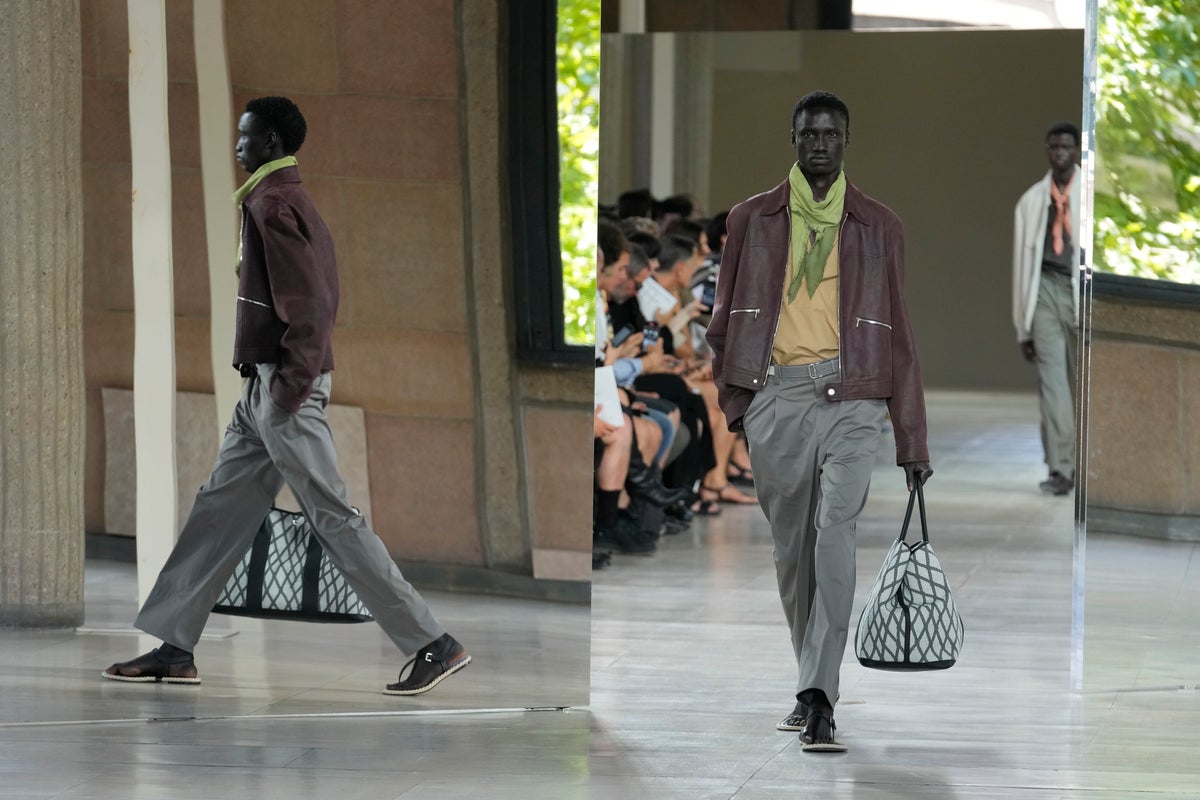Earlier this year, Hungary’s parliament passed legislation banning Pride events and allowing the use of facial recognition technology to identify attendees. The ban is supported by Prime Minister Viktor Orbán, a conservative nationalist and Trump ally whose regime has been widely described as anti-democratic. Orbán has for years decried “gender insanity” and “woke globalists,” the New York Times reports, “distracting attention from Hungary’s faltering economy and revving up his right-wing rural base.”
“None of us are free until everyone is free.”
But in spite of the ban, tens of thousands of people marched through Budapest on Saturday during the city’s 30th annual Pride march, according to several news outlets. At least 70 European Parliament members also attended, CNN reported. The event had the support of Budapest’s liberal mayor, Gergely Karácsony. “They have trapped themselves by trying to ban something that cannot be banned,” Karácsony said, according to the Times.
On Friday, Orbán suggested that law enforcement would not actively intervene in the demonstration, calling Hungary a “civilized country,” but held the door open to later legal action.
“We are adults, and I recommend that everyone should decide what they want, keep to the rules… and if they don’t, then they should face the clear legal consequences,” Orbán told state radio, according to Reuters.

Despite the ban and Orbán’s remarks on Friday, the event attracted large crowds, who began their march from the steps of Budapest’s city hall. Livestreams of the event showed participants of all ages flooding the streets with rainbow flags and supportive signs. “Solidarity is our pride,” one placard read. “None of us are free until everyone is free,” another sign said.
“The right to assembly is a basic human right, and I don’t think it should be banned. Just because someone does not like the reason why you go to the street, or they do not agree with it, you still have the right to do so,” one attendee, Krisztina Aranyi, told the Guardian.















